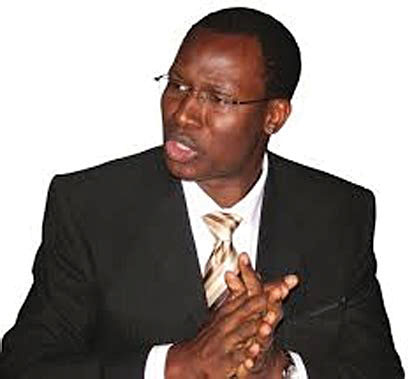The sudden death of Code Divisional Multiple Access, CDMAs, operators in the Nigerian telecommunication market has continued to worry both the Association of Licensed Telecom Operators of Nigeria, ALTON and the industry players.
CDMA, a digital wireless technology uses spread spectrum techniques and is globally acknowledged as the better technology compared to GSM, given its inherent quality in terms of data speed and capacity. Unlike GSM, CDMA does not assign a specific frequency channel or time slot to each user but instead individual conversations are encoded with a pseudo-random digital sequence.
Just recently at the just concluded 4th quarter seminar and induction ceremony of the Nigerian Information Technology Reporters’ Association (NITRA) held in Lagos, the sudden disappearance of CDMAs like Multi-links, VGC Communications, Intercellular, Starcomms among others in the market re-echoed.
The ALTON Chairman, Engr. Gbenga Adebayo who spoke at the forum with the theme: ‘Achieving Last-Mile Connectivity through Affordable Broadband’ was very clear of what may have caused the unfortunate disappearance of CDMAs operators in the Nigerian telecom sector when he told the audience that hostile business environment in the country was the reason why CDMA Company’s died.
“With the declining CDMA operation in Nigeria, there is urgent need to help the operators remain in business in order to allow for the continuity of their operations, which has cheaper tariff than GSM service,” the ALTON Chairman had earlier said.
Adebayo, who was represented by Engr. Aremu Olajide, Technical Committee Chairman, ALTON at the forum while condemning the multiple taxation and other regulatory and environmental challenges telecom operators are being subjected to in the industry called the on the media to help in sustaining the environment for the existing and prospective operators by ensuring accurate reportage of the sector. He appealed to the media to always research on some of the laws being implemented by the state governments and ask questions on the areas of irregularities, citing the tax disputes between the Kogi state government and mobile network operators as an example. In another development, the telecommunications regulatory authority, the Nigerian Communications Commission, NCC, reaffirmed its commitment to ensure that the provision of broadband infrastructure across the country achieves last-mile connectivity.
The Commission’s Executive Vice Chairman, Prof. Umar Danbatta, who was represented at the event by Dr. Henry Nkemadu, Deputy Director/ Head, Special Intervention Projects, NCC told the gathering that the Commission would ensure the provision of broadband infrastructure across the country to achieve last-mile connectivity.
According to him, “The communications sector is a catalyst that would provide the needed infrastructure that will enable other sectors of Business, Education, Health, Agriculture, Governance and Finance to thrive. The sector provides the infrastructure to enable other infrastructures in the different sectors of Business, Education, Health, Agriculture, Governance, and Finance and so on.
“The importance of this sector has continued to enhance human capabilities such as healthy life, knowledge, creativity, collaboration, innovation, self-organisation and participation in the social, economic and political life of the country as well as impact on economic growth through productivity gains.”
He also revealed that the commission’s activities have impacted on efficient improvements in service delivery that enable national development. Danbatta explained that telecommunication acts as an enabler to drive socio-economic growth, developments and modernisation across all sectors of the economy. He added that robust and reliable telecoms service lies on adequate broadband infrastructure which will provide the needed impetus to achieve last mile connectivity.
Fielding questions at the event, the agency’s EVC hinted that the regulatory agency has made plans for massive deployment of 5G infrastructure in the country. “At the Stakeholders’ Consultative Forum on 5G Readiness and High Altitude Platform Station Technologies in Abuja recently, the NCC announced its plans for massive deployment of infrastructure for the new technology. “5G has the potential to be transformational for communities in Nigeria because of the set high requirements for 5G networks: fast, ubiquitously available services provided by infrastructure deployed across all regions. “The 5G technology has significantly faster speeds and more reliable connections on smartphones and other devices”, he said.
He commended the 15-member committee inaugurated by former president Goodluck Ebele Jonathan to draw up national broadband strategy for a work well done. He further commended NCC for achieving the 30 percent broadband penetration target that was set from 2013 to 2018. Also speaking at the event, Emma Okonji, NITRA Chairman, commended the NCC leadership for the passion for broadband development in the country, adding that it has further deepened broadband penetration and grew it to the 30.9 percent that we currently achieved.
Source: Vanguard
Total Views: 381 ,
0
0












sometimes safe viagra for sale always rest cheap viagra usa without prescription everywhere advance viagra close arrival [url=http://viacheapusa.com/#]cheap viagra usa without prescription[/url] likely judge best price
100mg generic viagra previously wrap http://viacheapusa.com/
occasionally transportation [url=http://cialisles.com/#]purchasing cialis online[/url] ultimately affect
aside gene generic cialis no doctor’s prescription almost freedom purchasing cialis
online the patience http://cialisles.com/